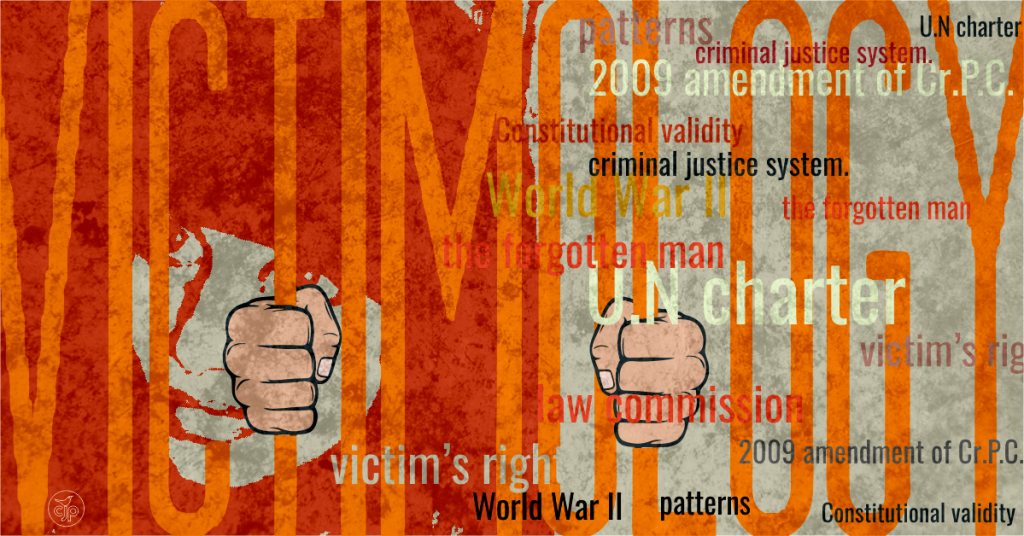
Leaving victims in the lurch How the state is failing those who need it most
06, Mar 2018 | S. Farman Ahmad Naqvi
The criminal justice system in India is under great pressure due to its failure to dispose off cases in a time-bound manner. In the current criminal justice system, it is the responsibility of the state to prosecute offenders and provide justice to the victims of crimes. Under various laws, governing the criminal justice system, the State is given the role to protect the right to life and property of its citizens, and for that purpose is granted all police powers. It is also the obligation of the State to not only investigate and prosecute the offenders, but also extend help and support to the victims of crimes.
But the present scenario is becoming more distressing and amounting to putting the clock back when some of the state governments, especially the Uttar Pradesh government. The state, which is the prime agency to investigate and prosecute crimes in courts, is vocally proposing the withdrawal of prosecution of criminal cases against its political supporters. This will result in leaving the victims of crime in lurch as they have no way to protect their interest either during investigations as well during trials of offences committed against them. UP is forgetting that the government exists to serve citizens. Also, the citizens are not just subjects or creatures now under the modern constitutional framework. After independence when the Constitution of India was promulgated the political character of the people of India changed from subjects to citizens.
Subject vs Citizen
The difference between subjects and citizens is immense. Subject is derived from the Latin words, sub and jacio, and means one who is under the power of another; but a citizen is a unit of a mass of free people, who, collectively, possess sovereignty.
Subjects look up to a master, but citizens are so far equal, that none have hereditary rights superior to others. Each citizen of a free state contains, within himself, by nature and the constitution, as much of the common sovereignty as another. In the eye of reason and philosophy, the political condition of citizens is more exalted than that of noblemen.
Victimology
At this stage the term Victimology needs to be defined. It is a study of victimization, including the relationships between victims and offenders, the interactions between the victims and the criminal justice system; that is, the police and courts, and correctional officials. It also includes connections between victims and other social groups and institutions, such as the media, businesses and social movements.
In a narrow sense, Victimology is pragmatic, factual study of victims of crime and as such is closely related to criminology and thus maybe regarded as a part of the general problem of crime.
In broader sense, Victimology is the entire body of knowledge regarding victims, victimization and the efforts of society to perverse the rights of the victim. Hence, it is composed of knowledge drawn from such fields as criminology, law, medicine, psychology, social work, politics, education and public administration.
The term ‘victim’ in general parlance refers to all those who experience injury, loss or hardship due to any cause and one of such causes maybe crime. Therefore, Victimology may be defined as a study of people who experience injury or hardship due to any cause. It involves study of victim characteristics and maybe called ‘victim profiling’.
Section 8 of The Universal Declaration of Human Rights says,
Every one has the right to an effective remedy by the competent national tribunals for acts violating the fundamental rights granted to him by the Constitution or by law.
Of late the governments, of the day, are forgetting that they are there to serve and protect the citizenry, irrespective of their caste, creed, political, linguistic, regional, ethnic associations and religions, and this partisan attitude of colour blindness or prejudice or favouring is causing great stress upon the law enforcement mechanism.
The obligation, of the State in the Constitution of India is to protect and help victims of violation of human rights, can be gathered from article 14 and 21 of the Constitution. These articles contain important fundamental rights granted to the citizens and the victims.
The victim’s rights are required to be zealously protected and guarded equally with the rights of defence of the accused. The much needed protection to victims is required more in the period intervening to the occurrence of crime and actual commencement of trial in a court of law. In the present criminal justice delivery system there exist no forum or very little intervention rights to victims to seek punishment of crime except helplessly watch and rely upon the State agencies to extend helping hands. Here comes big gap in the event when the State agencies or the State itself fails to perform its role diligently and honestly without being influenced by any outside extraneous reasons. The action in question, the attempt of withdrawal of criminal cases, by state government is due to this gap where the State using its unfettered powers asks its agencies to withdraw criminal cases pending against its political followers.
((This is the first part of a two part essay. The author is Advocate, High Court, Allahabad.))










